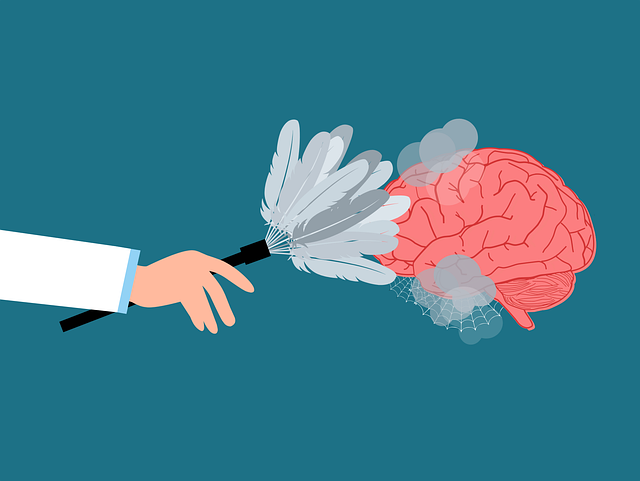The text emphasizes the unique mental health challenges faced by the elderly population, highlighting the importance of tailored public health initiatives. It advocates for therapy for elders crisis counseling as a vital tool, offering immediate support and long-term strategies to prevent depression and anxiety. Effective campaigns should include crisis counseling services, open dialogue about mental health, self-care promotion, and risk assessment tools. By addressing stigma and providing accessible resources, these initiatives can foster a supportive environment, improve elder well-being, and reduce healthcare costs. Success is measured through behavioral changes and improved community support for vulnerable seniors.
Public awareness campaigns play a pivotal role in addressing mental health issues among the elderly, with crisis counseling as a powerful tool. Understanding this demographic’s unique needs is essential, given their increased vulnerability and potential for isolation. This article explores strategies to enhance public outreach, focusing on crisis counseling techniques tailored to elders. We delve into effective communication, overcoming barriers to access, and measuring success, emphasizing the long-term benefits of such initiatives, particularly in providing therapy for elders’ crisis situations.
- Understanding the Elderly Population and Their Unique Needs
- The Impact of Crisis Counseling in Public Awareness Campaigns
- Designing Effective Communication Strategies for Target Audiences
- Overcoming Barriers to Accessing Mental Health Services
- Measuring Success and Long-term Benefits of Public Outreach Programs
Understanding the Elderly Population and Their Unique Needs

The elderly population, often overlooked in public awareness campaigns, presents a unique set of challenges and needs that require tailored approaches. As people age, they may face various physical, cognitive, and emotional changes that impact their overall well-being. This demographic includes individuals who might be more susceptible to mental health crises, such as depression and anxiety, due to factors like social isolation, loss of independence, or chronic illnesses. Thus, understanding the specific therapeutic requirements of seniors is paramount when designing effective public awareness initiatives.
One crucial aspect to focus on is providing therapy for elders’ crisis counseling. Many elderly individuals may struggle with managing stress, coping with life transitions, or adjusting to significant changes in their lives. Encouraging open conversations about mental health and offering accessible counseling services can significantly improve their quality of life. Additionally, promoting self-care routine development for better mental health among this age group is essential, as it empowers them to take proactive steps towards maintaining emotional well-being alongside physical health. Mental health awareness campaigns should also emphasize the significance of risk assessment for mental health professionals in order to ensure safe and effective support for senior citizens within their communities.
The Impact of Crisis Counseling in Public Awareness Campaigns

In public awareness campaigns focused on mental health and well-being, Crisis Counseling plays a pivotal role in reaching and supporting vulnerable populations, including elders. The immediate impact of such counseling is evident in its ability to provide therapy for those experiencing acute crises, offering a lifeline during desperate times. It empowers individuals to navigate challenging situations, fostering resilience and coping mechanisms that can prevent further deterioration into mental health issues like depression.
Beyond the immediate crisis, Crisis Counseling serves as a critical component in long-term mental health strategies. Risk assessment for mental health professionals is enhanced through these interactions, enabling more precise identification of at-risk individuals. Compassion cultivation practices, often incorporated into crisis counseling, have been shown to reduce symptoms of anxiety and stress, thereby potentially preventing future episodes that may require more intensive interventions. This holistic approach not only addresses the current crisis but also equips individuals with tools for enduring emotional well-being.
Designing Effective Communication Strategies for Target Audiences

Designing effective communication strategies for target audiences is a crucial aspect of public awareness campaigns. When crafting messages for specific demographics like elders in crisis or those needing counseling, it’s essential to consider their unique needs, preferences, and challenges. For instance, older adults might respond better to simple, straightforward language and visual aids, while emphasizing the benefits of therapy or counseling services. Incorporating personal stories or testimonials from peers can also enhance trust and engagement.
Tailoring communication strategies involves understanding the mental wellness landscape for each target audience. Promoting self-care practices and stress reduction methods through engaging mediums like journaling exercises or guidance sessions can resonate deeply with individuals seeking support. By aligning messages with their experiences, campaigns can effectively reach and assist those in need, be it therapy for elders in crisis or counseling services for broader mental health concerns.
Overcoming Barriers to Accessing Mental Health Services

Many individuals face barriers when it comes to accessing mental health services, especially for therapy tailored to elders’ crises. Stigma surrounding mental health issues often acts as a significant obstacle, leading many to hesitate or avoid seeking help altogether. Overcoming this requires comprehensive public awareness campaigns that educate communities about the importance of emotional well-being and dispel misconceptions. By promoting positive thinking and encouraging open conversations, society can foster an environment where people feel comfortable discussing their struggles and embracing therapy as a valid solution.
Additionally, ensuring accessibility is crucial. This includes providing crisis counseling services easily accessible to elders through various channels like community centers, senior care facilities, or even digital platforms catering to the elderly population. Incorporating compassion cultivation practices into these campaigns can help in building a supportive network, encouraging peer-to-peer support, and fostering a sense of belonging. Ultimately, breaking down barriers should aim to normalize mental health conversations and ensure that elders receive the necessary therapy without delay during times of crisis.
Measuring Success and Long-term Benefits of Public Outreach Programs

Measuring the success of public awareness campaigns is essential to understanding their long-term impact and benefits. By implementing effective evaluation methods, organizations can assess the reach and effectiveness of their initiatives, ensuring they are making a tangible difference in communities. One way to gauge success is by tracking changes in public behavior and attitudes towards specific issues over time. For instance, campaigns focused on elder care and crisis counseling can measure improvements in community members’ ability to recognize signs of distress in seniors and their willingness to seek therapy or support services.
Moreover, long-term benefits may include reduced healthcare costs and improved mental well-being among targeted populations. Public awareness campaigns development should incorporate strategies for burnout prevention among healthcare providers, fostering empathy building techniques that encourage early intervention and community support for at-risk individuals. This holistic approach ensures that initiatives not only raise awareness but also lead to sustainable positive outcomes, such as enhanced crisis counseling accessibility for elders in need.
Public awareness campaigns play a pivotal role in addressing mental health issues among the elderly, as highlighted by our discussion on therapy for elders and crisis counseling. By understanding their unique needs, leveraging effective communication strategies, and overcoming barriers to access, we can significantly enhance the well-being of this demographic. Measuring success through long-term benefits ensures these initiatives are not just impactful but also sustainable. Moving forward, integrating crisis counseling into public outreach programs is a promising game-changer in fostering a healthier and more supportive society for our aging population.














